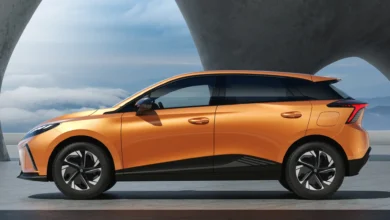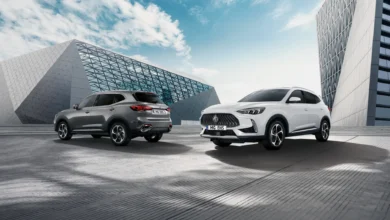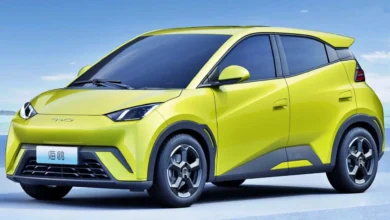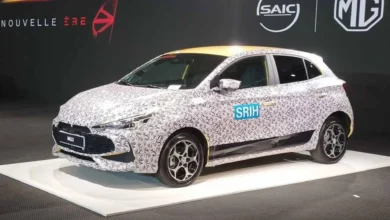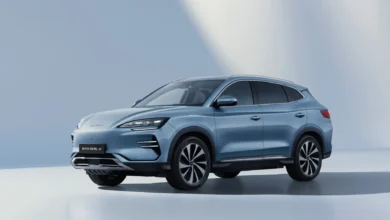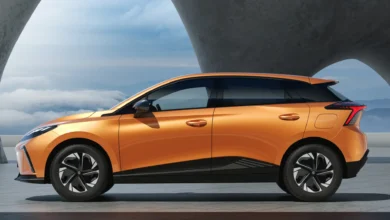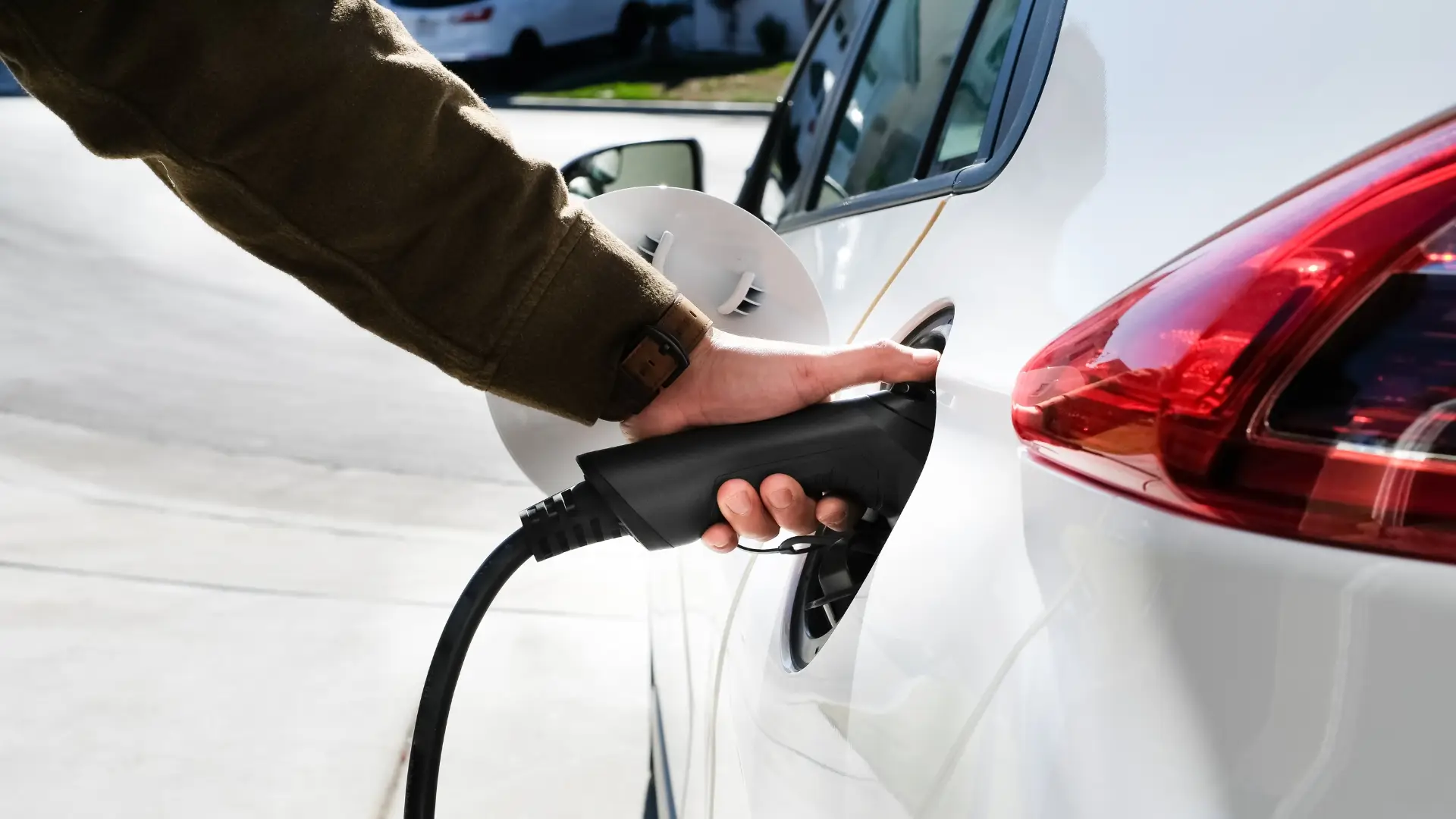
Most recently at the IAA Mobility 2023, you could see how far the Chinese car industry has come. BYD’s position as the global market leader in electric cars, including plug-in hybrids, ahead of Tesla, for example, was roughly the same as that of Volkswagen, and overall, manufacturers from China are likely to have rolled out more modern battery-powered vehicles in Munich than western ones. This strength of electric cars is also gradually becoming noticeable in the European registration figures – and the EU Commission now believes it has gone too far.
Surprising electric car announcement
The Commission will launch an investigation into subsidies for electric cars from China, said its President Ursula von der Leyen on Wednesday during a State of the EU address in the European Parliament (see photo above). The Union is open to competition, but not to a race to the bottom, and must defend itself against unfair practices, she said. A distortion of one’s markets will not be permitted either from outside or from within.
The president’s specific announcement came as a surprise because, according to a report by Politico, France, as the home of Renault and parts of Stellantis, had called for such an EU procedure, but there were also concerns. If the Commission finds actual unfair support for Chinese electric cars, the next step could be punitive tariffs – to which China in turn could respond with its sanctions against imports of Western cars.
In her speech, von der Leyen said electric cars are a crucial sector for the clean economy. But now global markets are being “flooded with cheaper Chinese electric cars.” Huge state subsidies are used to keep their prices artificially low, which distorts the European markets. The EU has not forgotten the consequences that “China’s unfair trade practices” have had on the European solar industry.
It almost sounds as if the result of the investigation that has just been announced is already certain. The US government has also noticed that China is far ahead of the West when it comes to electric cars and batteries for them. Instead of making imported cars more expensive, it is countering this with its high subsidies – the Inflation Reduction Act, with subsidies worth three-digit billions, requires North American production of electric cars such as batteries and also contains stricter rules on the origin of raw materials every year.
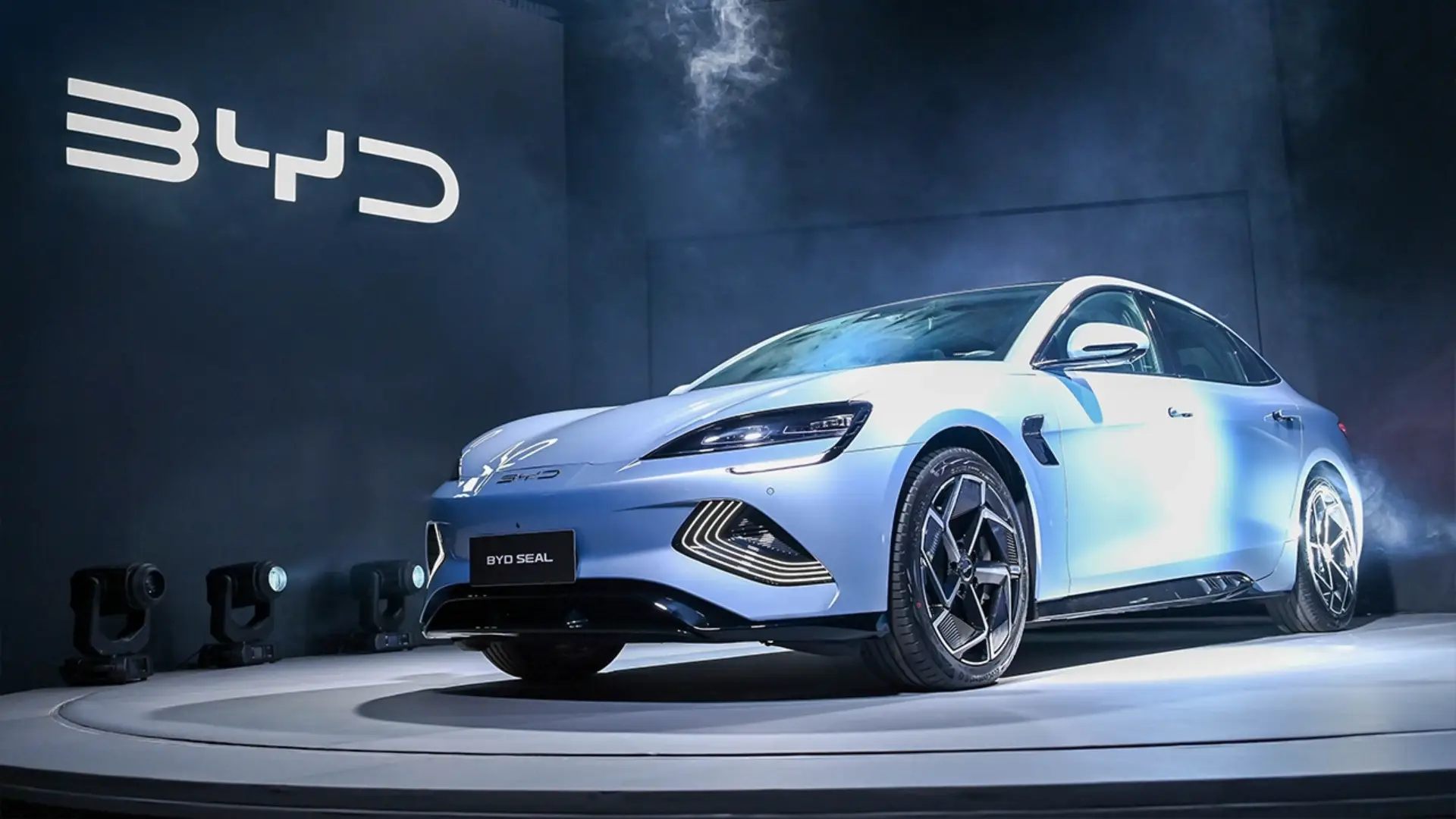
Chinese help for BYD – and Tesla
According to a report by Handelsblatt, the EU investigation will not be about government purchasing incentives for citizens, as exists in many European countries, but rather about aid for manufacturers of raw materials, batteries, and cars in China. An expert cited loans from state banks at low-interest rates and cheap land for Chinese companies as an important tool. In addition, manufacturers like BYD should receive cheaper steel from overcapacity and preferential government orders.
However, this company in particular has not yet attracted attention in Europe with predatory pricing. In China, its compact electric car Dolphin costs the equivalent of just 10,000 euros – but in Germany, the price will be at least three times as high, as BYD announced at the IAA. The Seal limousine, as a direct competitor to the Tesla Model 3, should cost at least 47,500 euros, which is also almost twice as much as at home. And as if to further complicate the EU review, several European manufacturers want to produce electric cars in China in the future and export them to their homeland, and Tesla is said to have received three-digit million aid for its Gigafactory there.
